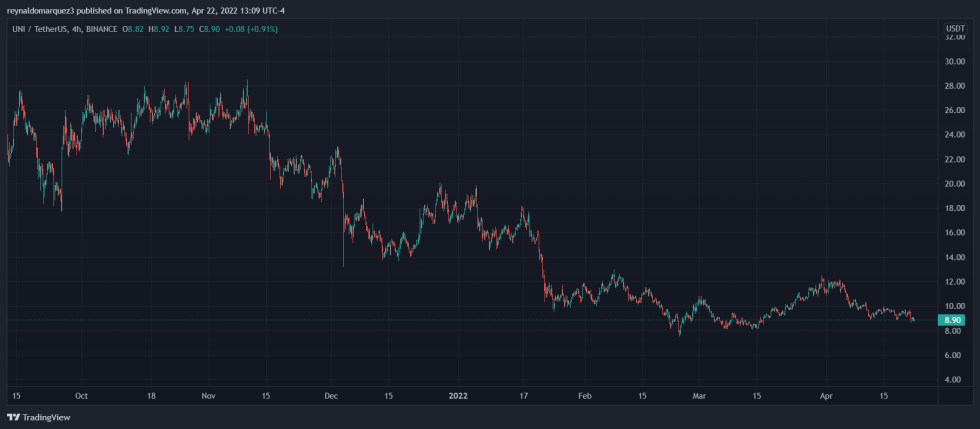
The company behind the development of the popular automated market maker (AMM), Uniswap Labs updated its policy regarding blocking wallets from accessing the decentralized application (dApp). Per an official post, Uniswap’s front end will be blocked to users associated with criminal activities.
Related Reading | Russia To Legalize Crypto Payments, But Proposal Causes Internal Concerns
The company entered into a partnership with TRM Labs, a company for digital asset compliance and risk management, to identify wallets with a high probability of being related to criminal activities. Thus, the company will block those addresses linked to:
Sanctions, terrorism financing, hacked or stolen funds, ransomware, human trafficking, and child sexual abuse material (CSAM), according to the official post. TRM Labs has a suite of products that enable them to identify these wallets.
These include a tool to visualize a “comprehensive risk profile” for wallets, addresses, and entities, per their website. The company also has the capacity to trace the flow of funds “across 23 different blockchains and 900,000 assets”.
Uniswap Labs claimed the following on their reasons why they have adopted this policy:
We remain committed to developing products in a way that provides a safe, transparent, and robust financial infrastructure that can empower users around the world.
The company claims that any blocked wallets have a “strong” likelihood of being related to criminal activities. However, in the “low chance” of those users with blocked wallets not associated with these operations or accidentally block, Uniswap Labs recommended:
We do not anticipate many errors, but they are always possible. Please email compliance@uniswap.org to enquire about the process to have your wallet address unblocked. Please note that we do not control TRM Labs or their independent determinations about risk categories and wallet addresses. Please also note that their determinations, or ours, are not being reported to law enforcement.
Uniswap Comes Under Scrutiny
The DeFi sector has been under the public spotlight for some time. Political actors in the U.S. and other parts of the world believe the sector to be “unregulated” and a platform for criminal activities.
The sanctions imposed on Russia after their invasion of Ukraine have strengthened this narrative. The same actors targeting DeFi protocols and cryptocurrencies believe them capable of allowing Russia to circumvent the sanctions.
Despite the many statements from experts and U.S. government agencies claiming otherwise, Uniswap Labs, crypto exchanges, and other entities have been ramping up their efforts to block potential ways for sanction individuals to “launder” their funds via their platforms.
In addition, there has been an increase in cyber attacks targeting crypto entities. In one of the most recent and most profitable, bad actors managed to extract $600 million from Axie Infinity, the popular NFT-based game.
Uniswap Labs’ partner TRM worked with the Center for a New American Security (CNAS) on a report that identifies North Korean hackers with attacks on crypto entities. The document noted the following on the rising threat of bad actors targeting the crypto space:
(…) the Lazarus Group has transformed from a rogue team of hackers to a masterful army of cybercriminals and foreign affiliates, capable of compromising major national financial networks and stealing hundreds of millions of dollars’ worth of virtual assets.
Related Reading | U.S. Unleashes New Sanctions Against Russian Oligarchs, Bank And Crypto Miner BitRiver
At the time of writing, UNI’s price trades at $8.90 with a 6% loss in the last 24-hours.



















